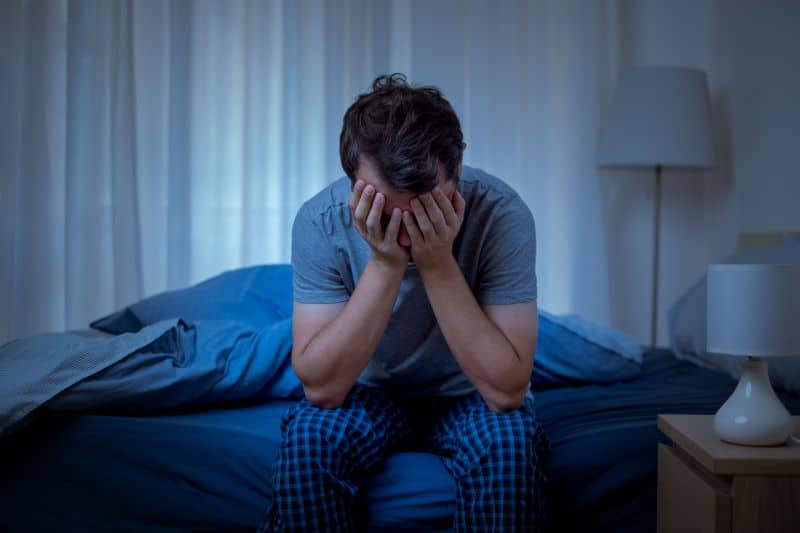- Home
- Product
- Patient
- Order Online
- Prescription Quote
- What is a Compounding Pharmacy?
- Collect at your Pharmacy
- Find a Pharmacy
- Find a Integrative Doctor
- Child Friendly Medication
- Vet & Animal Compounding
- Easy to Swallow Pills
- Motion & Seasickness
- Medication without the Additives
- Unavailable Medications
- Schedule 8 Shipping Waiver
- Pharmacists
- Prescribers
- Shop
- FAQs
- About
- Careers
- Contact Us
- Home
- Product
- Patient
- Order Online
- Prescription Quote
- What is a Compounding Pharmacy?
- Collect at your Pharmacy
- Find a Pharmacy
- Find a Integrative Doctor
- Child Friendly Medication
- Vet & Animal Compounding
- Easy to Swallow Pills
- Motion & Seasickness
- Medication without the Additives
- Unavailable Medications
- Schedule 8 Shipping Waiver
- Pharmacists
- Prescribers
- Shop
- FAQs
- About
- Careers
- Contact Us
New Research Shows Poor Sleep Leads to Chronic Mental Health Issues

Bad sleep can turn you into a grumpier, less productive, somewhat dishevelled version of yourself. Nothing that a double espresso won’t fix, right?
Perhaps not. The extent sleep’s role plays in our functionality could be much more significant than previously thought.
Recent research suggests that constantly disrupted sleep may trigger a range of serious mental health issues. The research reveals a hidden link between circadian rhythm and mental health stability.
A team of researchers from The University of California proposed that circadian rhythm disruption (CRD) is a common denominator in most mental health issues. They discuss the connection between CRD and commonly experienced disorders such as anxiety and attention deficit hyperactivity disorder (ADHD), but also its relation to more serious cases of schizophrenia, Tourette’s, bipolar and even Alzheimer’s.
And it makes sense that poor sleep can worsen mental health. As a society we are becoming increasingly restless; in a world where the phone is constantly at our fingertips, and caffeine on our lips; where work is placed above everything else, and rest is shunned. Meanwhile, more and more, people are being diagnosed with mental and age-related illnesses.
What is circadian rhythm?
So, what is your circadian rhythm? It relates to light and dark cues, and your body’s internal, natural process of falling asleep and waking up. When this rhythm is disrupted, it is known as CRD, which manifests into sleep dysfunction.
The study has combined neuro, pharmaceutical and computer science; conducted on a molecular level, it found that the quality of sleep affects how the brain develops.
Remarkably, CRD was found to be a common link between mental health issues, and also how one mental health issue can trigger another. This means that people usually experienced more than one mental illness at a time, and they became worse over a life span.
An interesting aspect of the study examined pregnant mice. When subjected to disrupted sleep, they consequently gave birth to socially avoidant, hyperactive pups. Overall, it concluded that all living organisms require a good night’s rest in order for them to operate effectively.
How can I get more sleep?
So unfortunately, yes, sleep debt is real, and too much may cost you your mental well-being. However, the good news is you can start taking active steps towards both prevention and recovery. Things that can help include:
- Developing a night routine. Small rituals can ease your body into sleep.
- Creating a schedule. Aiming to go to bed and wake up at the same time every day.
- Melatonin. A hormone that is released in the body at night and can aid in sleep. Available in supplement form.
- Physical activity. Exercise during the day can wear the body, and the brain, out helping sleep to come more readily
- Vitamin D. Provento improve sleep quality.
- Limiting Artificial Light. Too much blue light from technology can interfere with your circadian rhythm.
Overall, it is evident that sleep is an extremely complex and critical process. Often overlooked, it may be the key to some peace of mind. If the sleeping mask and counting sheep isn’t quite working, talking to a doctor may be beneficial.
If required, supplements than aid in sleep – including Melatonin and Vitamin D – can be made up by National Custom Compounding is precise doses prescribed by a health practitioner. Click here to find out more.
More articles that may interest you
[optin-monster-inline slug=”oqqklvasafov6yvbfsuo”]
